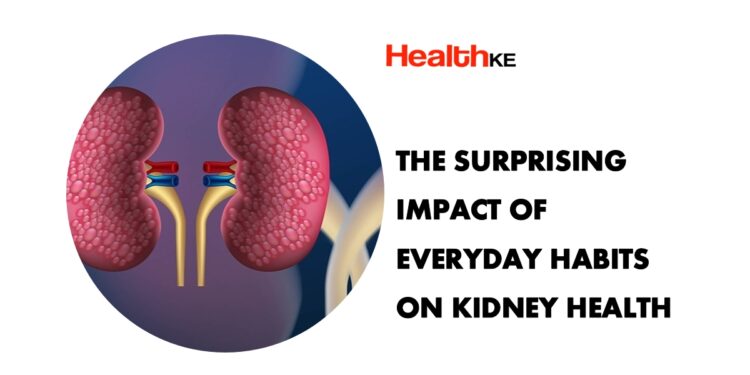The kidneys, vital organs in the human body, play a crucial role in filtering waste and maintaining overall health. While the topic of kidney stones is often discussed in medical circles, the general public may not be fully aware of how their daily habits can significantly impact their kidney health. This article aims to shed light on the lesser-known connections between everyday activities and the health of your kidneys, emphasizing the importance of preventive measures and lifestyle choices in reducing the risk of kidney stones.
Table of Contents
The Role of Daily Habits in Kidney Health
Every day, without realizing it, we make choices that can either support or undermine our kidney health. Activities as routine as our diet, fluid intake, and physical activity level have direct implications for the risk of developing kidney stones. It’s essential to be mindful of these habits and understand their long-term effects. For those seeking comprehensive kidney stone resources that delve into the specifics of managing and understanding kidney stones, there is a wealth of information available.
Hydration and Kidney Stones
One of the simplest yet most effective ways to maintain kidney health is through adequate hydration. The kidneys require enough fluids to process and flush out bodily wastes effectively. Dehydration is a significant risk factor for kidney stone formation. When the body is dehydrated, the urine becomes more concentrated with minerals and salts, which can crystallize and form stones. Therefore, drinking an adequate amount of water daily, typically about 2-3 liters, is crucial in preventing kidney stones.
Dietary Habits and Their Impact
Diet plays a pivotal role in kidney health. Diets high in sodium, sugar, and animal proteins can increase the likelihood of developing kidney stones of different sizes. You can refer a kidney stone size chart for understanding size dynamics. Sodium, commonly consumed as salt, can cause increased calcium in the urine, leading to stone formation. Similarly, high sugar intake, especially from fructose, is linked to an increased risk of kidney stones. Animal proteins, while essential for health, should be consumed in moderation as they can increase uric acid and calcium in the urine, both of which are components of certain types of kidney stones.
In contrast, a diet rich in fruits and vegetables can help prevent kidney stones. Foods high in citrate, such as lemons and oranges, are particularly beneficial as citrate helps prevent stone formation by binding with calcium in the urine. Maintaining a balanced diet with an emphasis on plant-based foods and adequate fluid intake is a simple yet effective strategy for kidney stone prevention.
The Role of Physical Activity
Regular exercise is another critical factor in maintaining kidney health. Physical activity helps manage body weight, improve metabolism, and reduce the risk of conditions like high blood pressure and diabetes, which can contribute to kidney stones. Even moderate activities like walking, cycling, or swimming can have a positive impact. It’s important to engage in physical activities that are enjoyable and sustainable as part of a regular routine.
Stress and Kidney Stones
Stress, often overlooked, can indirectly contribute to the formation of kidney stones. High stress levels can lead to unhealthy lifestyle choices such as poor diet, reduced physical activity, and inadequate water intake, all of which can increase the risk of kidney stones. Managing stress through techniques like mindfulness, yoga, or regular exercise can therefore be an essential part of a kidney-healthy lifestyle.
Medications and Kidney Stones
Certain medications and supplements can increase the risk of kidney stones. These include diuretics (used to treat high blood pressure), calcium-based antacids, and some supplements like vitamin C and calcium. It’s crucial to discuss medication use with a healthcare provider, especially for those with a history of kidney stones.
Preventative Measures
In addition to lifestyle adjustments, regular health check-ups are vital for early detection and management of potential kidney issues. Blood and urine tests can help monitor kidney function and identify any abnormalities that may indicate an increased risk of stones.
Understanding the Importance of Kidney Stone Resources
While lifestyle adjustments play a critical role in preventing kidney stones, understanding the specifics of kidney stones, such as their size, composition, and location, is crucial for effective management. Comprehensive kidney stone resources provide valuable information on these aspects, offering insights into the various types of kidney stones, their symptoms, and the most effective treatment options. These resources are invaluable for anyone looking to deepen their understanding of kidney stones and how to manage them.
Takeaways
Maintaining kidney health is a daily commitment influenced significantly by our lifestyle choices. Understanding the impact of habits like hydration, diet, exercise, stress management, and medication use is the first step towards preventing kidney stones and ensuring long-term kidney health. For those interested in learning more about kidney stones, including their size, composition, and management strategies, exploring detailed kidney stone resources can provide a wealth of information and guidance.


 Home
Home









